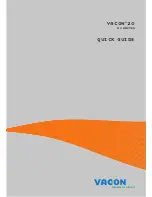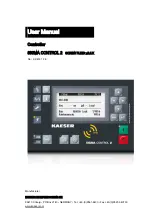
Installation
2/03
10260A Series Actuators – Installation, Operations, and Maintenance
13
3. Installation
3.1 Introduction
This chapter provides the user with all the mechanical and electrical information required to get the
10260A Series Actuator up and running in the user’s specific application. This chapter also includes safety
precautions and unpacking instructions.
3.2 Before Starting
3.2.1 Unpacking
If there are visible signs of damage to the shipping container, notify the carrier and Honeywell
immediately.
If there is no visible damage, compare the contents with the packing list. Notify the carrier and Honeywell
immediately if there is equipment damage or shortage.
Please do not return goods without contacting Honeywell in advance. The contact number is 1-800-423-
9883.
3.2.2 Site Selection
Mount the actuator in a location where it will be easily accessible for maintenance and for manual
operation by means of the handwheel. The exact location must be determined in accordance with the
linkage used.
It is important that the actuator be mounted securely to a solid foundation commensurate with the
maximum torque developed. Use studs or bolts that are as large as the foot mounting holes.
The following precautions should be taken when selecting an installation site.
•
Shield the actuator from rain or snow unless the NEMA 4 option was selected.
•
Allocate sufficient space around the actuator for the removal of all covers to permit inspection or
calibration and to provide access to the handwheel.
•
Use auxiliary shielding to protect the actuator from excessive heat or cold outside of the rating of
the Actuator and from corrosive elements
•
Ambient temperature should not exceed 185 °F (85 °C).
•
The minimum low temperature limit is –20 °F (–30 °C).
3.2.3 Outline Dimension Drawings
An outline and dimension drawing for mounting is furnished with each unit. See also Figure 3-1 and Figure
3-2.
















































